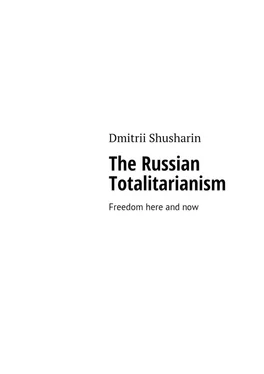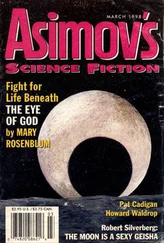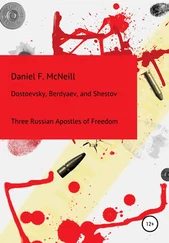But it does not make it weaker. The facelessness and insignificance of power is the essence of its strength and success. The unusually harshness and powerless hysteria of the critics of power from among the democrats is explained not by their impotence, but by the complete absence of any interest of the authorities towards the opponent.
Putin is the most popular leader in the history of Russia. He is absolutely congruent with Russian identity and its aspirations, which means he needs no ideology and other baloney. And he does not need charisma either. His charisma is the absence of it. This is the leader of the era of mass culture, with no theories, ideologies and great style.
The adulation and praise of the leader are not the same as before. Stalin was deified. The praise of Brezhnev was in fact a thinly disguised ridicule, all parody, but a well-meaning parody as a form of deference. Putin’s veneration is quite different. The man of the crowd is aggrandized together with the crowd. The crowd, falling into a national narcissism, sings the praise to itself in an act of self-congratulation.
The people really have something to be proud of. Totalitarianism is the free choice of free people. All studies of totalitarianism, which are not so many, confirm it. Totalitarianism grows out of democratic institutions and democratic processes. Even the very first model, the Russian one, did not come directly from the autocracy, although it inherited a lot from it. It took a brief period of Russian democracy to bring up the totalitarian rule, although Bolsheviks hadn’t won the Constituent Assembly elections, nor the elections to the Soviets. Well, the Nazis at the elections to the Reichstag were not absolute winners either. It is ludicrous and naive to equate the historical choice with the formal results of elections.
The current model of Russian totalitarianism grew out of democratic attempts of the 1990s, although current regime tries to oppose itself to that time. The continuity was most noticeable in the main thing – in imperial politics. But the power-proprietary relation principles had developed at the same time.
Putin did not commit a coup and did not do anything illegal. Putin returned the country from the nineties with attempts at real democracy to a mock democracy, conceived at the beginning of perestroika. Whatever the progressive public said, the current ruling elite is Gorbachev’s heirs, his direct followers.
Perestroika was an attempt of the totalitarianism’s renewal, its reorganization on a rational basis, with the rejection of the most archaic of its features. Thirty years after Gorbachev’s first steps in this direction, we are witnessing the success of his undertaking.
Let’s remember what Perestroika (the restructuring) was aimed at, and what emerged two decades after. Dismantling the omnipotent domination of the party apparatus is a done deal; the United Russia has nothing in common with the CPSU. There is an appearance of market economy, but there is no free market. The idiotic idea of planned economy is abandoned, it is integrated into the world economic system under complete government control. The same is in politics. The current ruling elite has ensured irremovability with no mass repression and wiping out the opposition elite. The electoral procedures are observed, but there is no electoral democracy, as there is no electorate, only the population.
Power is independent from society. The main source of its legitimization, as in Soviet times, is recognition from the outside world, the world community limited to seven states. No more needed. And America alone is enough.
Such is the political realization of the Russian national identity, no more and no less. Therefore, no changes in Russia could be made with the implementation of political programs, the replacement or renewal of the elite, and infinitely less possible with revolutions and insurrections. We are dealing here with the fundamental, essential, deepest motivations of political behavior.
To overcome this quandary, a man of the crowd should become a man. And this is the only threat to the ever-reviving Russian totalitarianism.
In 1999, an economic recovery began in Russia. This is what made the then “saviors of the fatherland” alike with all their totalitarian predecessors, who came to power not at the most difficult moment, but when the situation was already beginning to improve. The rest was completed by the prices of oil and gas.
Going back to my article published two years after Putin came to power 15 15 Шушарин Д. Discipula vitae // Термидор. М. Модест Колеров & “Три квадрата” 2002. С.7—46.
, I think now it makes sense to recall its main points, because it was then that the expectations of the change of people in power were replaced by alarms.
“The results of Putin’s biennium are obvious. Relative economic stabilization makes it possible to move to more consistent right-liberal reforms, but in the political life, right-populist trends are clearly prevailing. The watchmen came to power. Not guards and gate-keepers, but people with Soviet watchmen mentality. The stabilization perceived as a risk factor: the danger of the fact that the watchmen will want to realize their main dream – the establishment of a totalitarian regime in Russia – is growing. As before, this has not happened at the peak of the crisis, but at the first signs of stabilization, when there is already something to profit from.
Speaking of the “biennium”, we are ready to evaluate the current state of affairs historically. However, it is not always productive. When it comes to what has been happening in Russia in the last two years, the clichés most used are “the post-Yeltsin era,” or “the Putin system.” That is, the situation is described in relation to the past, and not on a par with what is happening now in countries whose political system is emulated by Russia in its post-Soviet development. The political processes taking place now in Europe are for the most part ignored.
Meanwhile, some changes in the traditional political structure can be observed over there, primarily on the right flank. More and more visible and influential are those who are called new rightists, and their ideology and political practice is assessed as right-wing populism, which is seriously different from right-wing liberalism. Most accurately, perhaps, The most famous and influential right-wing populist of Europe Jean-Marie Le Pen is identified as the” right in the economy, left in social policy”. To a certain extent this concept, term or cliché can be called anything, but the “right populism” is the best characterization of the current Russian government’s practices.
We can happily conclude that Russia finds its way to Europe through populism; only the points of departure are quite different. The European New Right finds itself in a rigid framework of constitutional norms, institutional and public restrictions. In our country the situation is quite dissimilar. First of all, in Russia there is no clear understanding that there must be a direct link between the proclaimed constitutional order and its real institutional embodiment.
<���…>
Two years ago, it seemed as if the movement was clearly forward along the path of liberal reforms. Now everything turned another way. And it is not the vector of movement that has changed. The movement itself is no more.
Actually, this is the ideal of the totalitarianism.
<���…>
The explicit orientation of certain power groups to a totalitarian experience is obvious. If such an undertaking is realized, the degeneration of state institutions, the acceleration of the erosion of the constitutional order that has already begun, is inevitable. For society, this means the following.
Читать дальше












